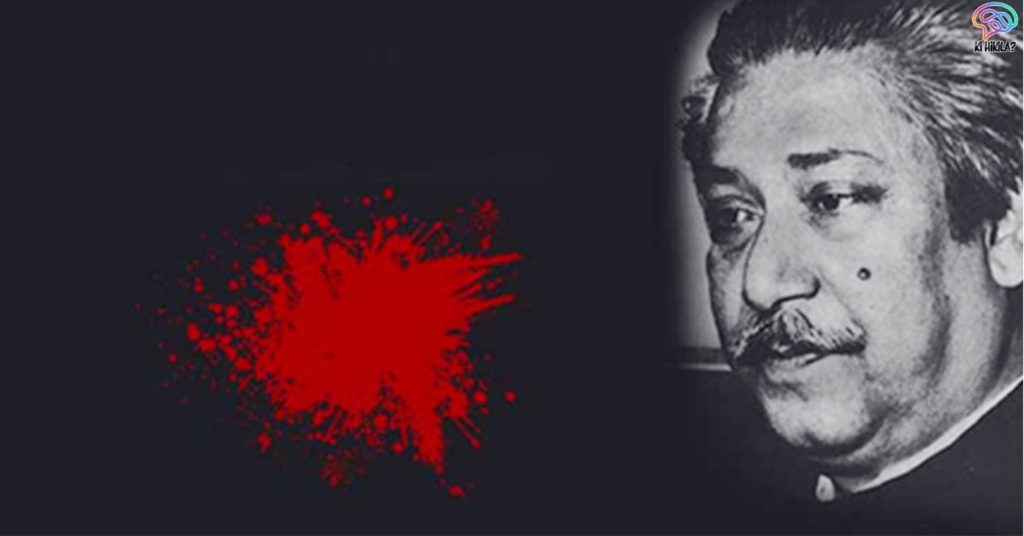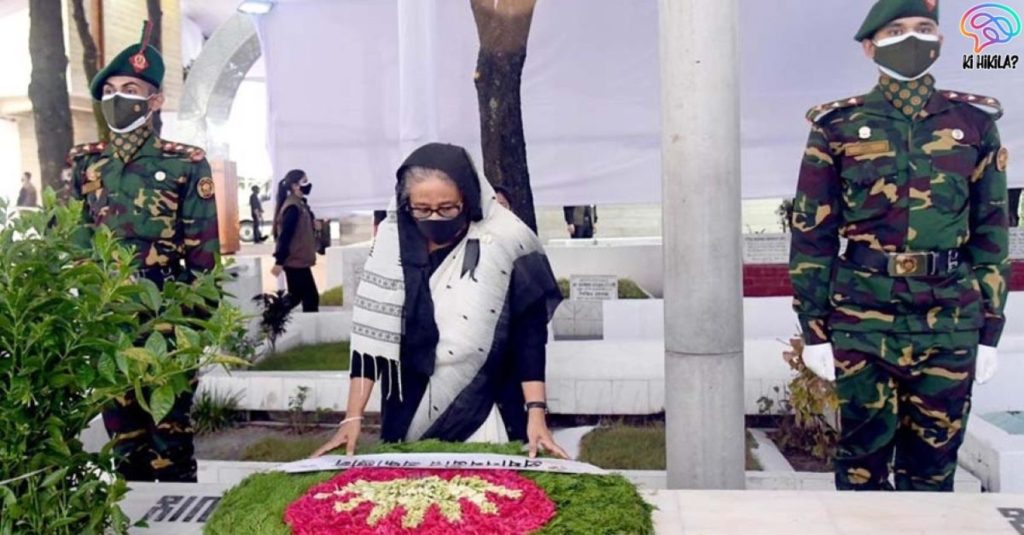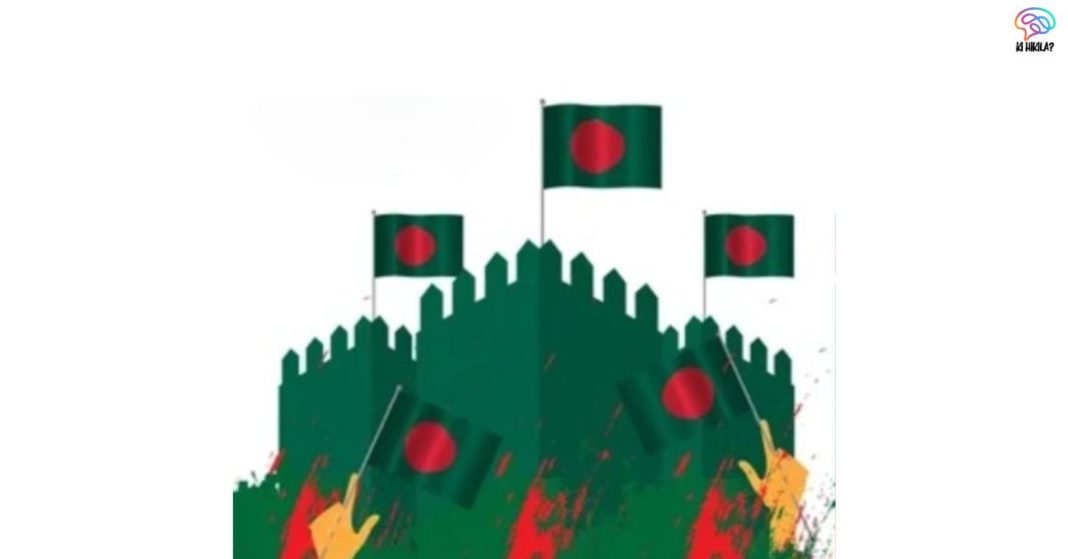National Mourning Day (Bangladesh) is one of the most solemn and important days in the country’s history. Observed on 15 August every year, it marks the assassination of Sheikh Mujibur Rahman, the Father of the Nation, along with most of his family members in 1975. The day serves as a time for reflection, remembrance, and national unity.
Understanding National Mourning Day (Bangladesh)
National Mourning Day (Bangladesh) is observed in memory of the nation’s founding leader, Sheikh Mujibur Rahman, who played a key role in Bangladesh’s independence from Pakistan in 1971. Known as Bangabandhu (Friend of Bengal), he devoted his life to the welfare and freedom of the people.
On this day, Bangladeshis from all walks of life remember his contributions, express grief for the tragedy, and renew their commitment to the ideals of democracy, justice, and equality.
Historical Background of National Mourning Day (Bangladesh)
The Life of Sheikh Mujibur Rahman
Sheikh Mujibur Rahman was born on 17 March 1920 in Tungipara, Gopalganj. From a young age, he showed leadership qualities and became active in politics. He founded the Awami League, which later led the movement for independence.
His leadership during the 1971 Liberation War united the Bengali people and resulted in the creation of Bangladesh. After independence, he served as the first President and later as Prime Minister.

The Tragedy of 15 August 1975
On the morning of 15 August 1975, a group of army officers stormed Sheikh Mujibur Rahman’s residence in Dhaka and assassinated him, along with most of his family members. His daughters Sheikh Hasina and Sheikh Rehana survived because they were abroad.
This event not only took away the Father of the Nation but also shook the foundation of Bangladesh’s democracy.
Timeline of Events Related to National Mourning Day (Bangladesh)
- 17 March 1920 – Birth of Sheikh Mujibur Rahman in Tungipara.
- 1949 – Formation of the Awami League, with Mujib as a key leader.
- 7 March 1971 – Mujib’s historic speech calling for independence.
- 16 December 1971 – Victory in the Liberation War; birth of Bangladesh.
- 15 August 1975 – Assassination of Sheikh Mujibur Rahman and most of his family members.
- 1996 – National Mourning Day (Bangladesh) officially reinstated as a state observance.
Importance of National Mourning Day (Bangladesh)
National Mourning Day holds deep significance because:
- It Honors the Father of the Nation – Sheikh Mujibur Rahman’s leadership and sacrifice are remembered.
- It Preserves the Memory of the Liberation Struggle – The day reminds people of the journey to independence.
- It Teaches Historical Lessons – Young generations learn the cost of freedom and the dangers of political violence.
- It Encourages National Unity – The day brings citizens together in reflection and solidarity.
Observance of National Mourning Day (Bangladesh)
Government Programs
- Hoisting the national flag at half-mast at government offices, schools, and public institutions.
- Arranging seminars, discussions, and exhibitions about Sheikh Mujibur Rahman’s life and works.
- Broadcasting documentaries, speeches, and historical programs on national television and radio.
Public Participation
- Wearing black badges to show grief and respect.
- Holding prayer sessions in mosques, temples, and churches for the souls of the victims.
- Organizing essay competitions, debates, and art exhibitions in schools and colleges.
Humanitarian Activities
- Free distribution of food to orphans, the poor, and the needy in honor of Mujib’s compassion for the underprivileged.
National Mourning Day (Bangladesh) in the Education Sector
Educational institutions play a key role in passing the history of this day to young students. Teachers explain:
- Why Sheikh Mujibur Rahman is called the Father of the Nation.
- The events of the 1971 Liberation War.
- The importance of unity, tolerance, and democracy.
Lessons from National Mourning Day (Bangladesh)
The observance teaches several important lessons:
- Leadership Means Sacrifice – Great leaders serve their people even at personal risk.
- Freedom is Precious – Independence comes with responsibility and must be protected.
- Violence Damages Nations – Political differences must be resolved peacefully.

International Response to the Tragedy
The assassination of Sheikh Mujibur Rahman shocked the international community. Leaders from many countries expressed condolences, and Bangladesh received global sympathy for losing a leader who had fought for peace, freedom, and development.
Conclusion
National Mourning Day (Bangladesh) is not only a day of sadness but also a reminder of the country’s resilience and unity. By remembering Sheikh Mujibur Rahman’s sacrifices and vision, Bangladesh strengthens its commitment to democracy, justice, and equality. The lessons of this day inspire both young and old to work towards a peaceful and prosperous nation.
Frequently Asked Questions (FAQ) on National Mourning Day (Bangladesh)
1. What is National Mourning Day (Bangladesh)?
National Mourning Day (Bangladesh) is observed on 15 August every year to remember the assassination of Sheikh Mujibur Rahman, the Father of the Nation, and most of his family members in 1975.
2. Why is Sheikh Mujibur Rahman called the Father of the Nation?
He is called the Father of the Nation because he led the struggle for Bangladesh’s independence from Pakistan in 1971 and worked tirelessly for the freedom and welfare of the people.
3. Why do people observe National Mourning Day (Bangladesh)?
People observe this day to honor Sheikh Mujibur Rahman’s memory, recall his contributions to the nation, and reflect on the sacrifices made for independence and democracy.
4. How is National Mourning Day (Bangladesh) observed?
The day is marked by hoisting the national flag at half-mast, wearing black badges, holding prayers, arranging discussions, showing documentaries, and distributing food to the poor.
5. Who survived the 15 August 1975 assassination?
Only Sheikh Mujibur Rahman’s daughters, Sheikh Hasina and Sheikh Rehana, survived because they were abroad during the attack.
6. When was National Mourning Day (Bangladesh) officially recognized?
It was officially recognized in 1996 after the Awami League returned to power and reinstated it as a national observance.
7. What lessons does National Mourning Day (Bangladesh) teach?
It teaches the value of freedom, the importance of unity, respect for democratic leadership, and the dangers of political violence.
8. Is National Mourning Day (Bangladesh) a public holiday?
Yes, it is a national day of mourning and a public holiday in Bangladesh, with official ceremonies and public events held across the country.
9. Do schools participate in National Mourning Day (Bangladesh)?
Yes, schools and universities arrange essay competitions, debates, art exhibitions, and special assemblies to educate students about the day’s significance.
10. What does “Bangabandhu” mean?
“Bangabandhu” means Friend of Bengal, a title given to Sheikh Mujibur Rahman as a mark of love and respect from the people of Bangladesh.



